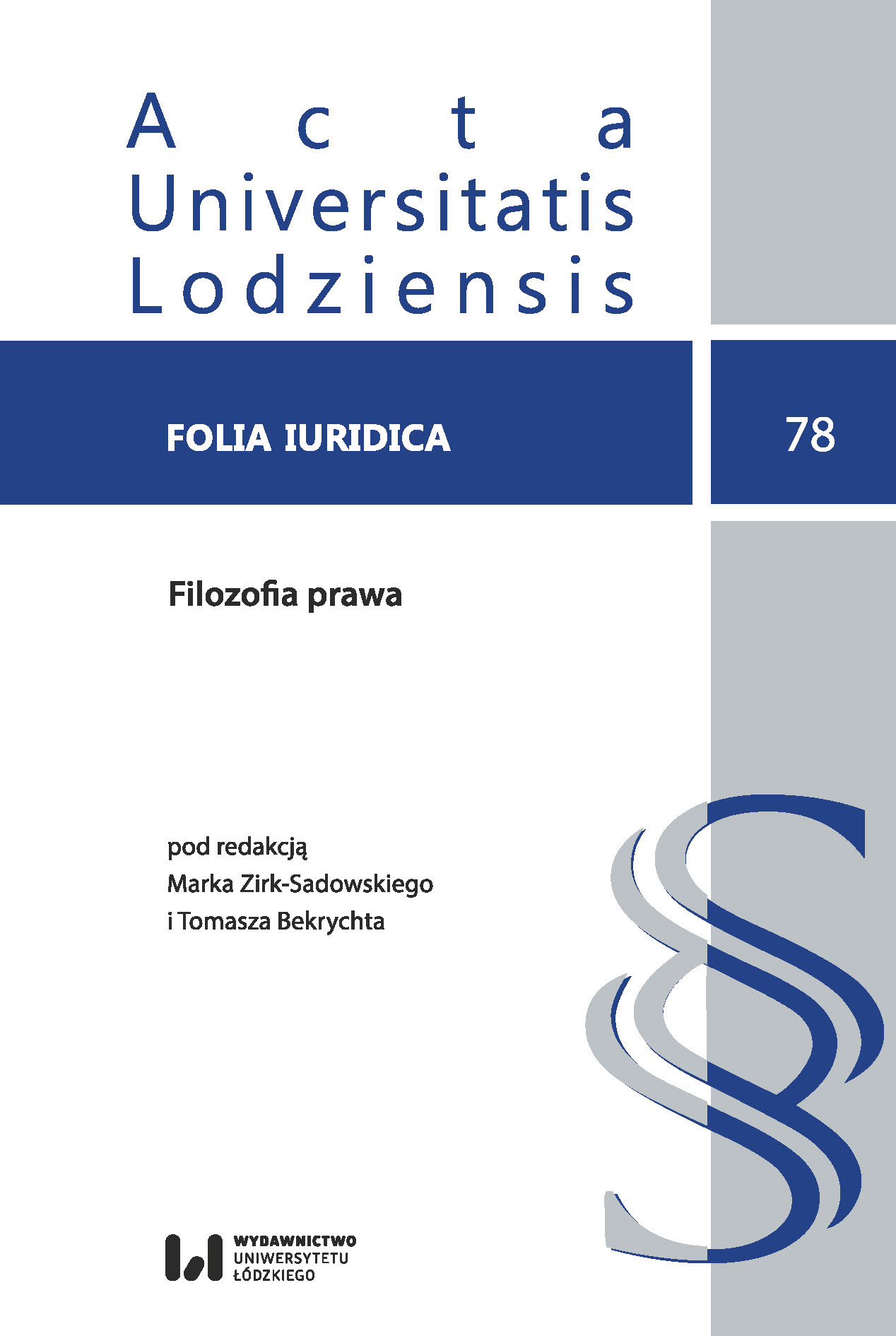About Friedrich August von Hayek’s political philosophy in light of research on the economic efficiency of common law
DOI:
https://doi.org/10.18778/0208-6069.78.02Keywords:
economic efficiency, cultural evolution, common law, Hayek, Law and EconomicsAbstract
The goal of this paper is to evaluate Friedrich August von Hayek’s political philosophy through the prism of the research on the economic efficiency of common law conducted within Law and Economics. One of the assumptions of Hayek’s political philosophy was the thesis about the optimizing character of cultural evolution. According to this thesis legal rules which have arisen spontaneously are economically efficient and thereby do not need to be corrected by the legislator. This thesis was thoroughly analysed by the Law and Economics scholars (notabene not inspired directly by Hayek’s philosophy), and these analyses are critically discussed in this paper. The results of these analyses are not unambiguous; nonetheless, they seem to undermine Hayek’s assumption about the optimizing character of cultural evolution. This fact affects the assessment of Hayek’s normative postulates; in particular, it justifies scepticism towards his critique of legislative activity.
Downloads
References
Cooter, Robert, Lewis Kornhauser. 1980. “Can Litigation Improve the Law Without the Help of Judges?”. The Journal of Legal Studies 9 (1): 139–163.
Google Scholar
Hathaway, Oona. 2001. “Path Dependence in the Law: The Course and Pattern of Legal Change in a Common Law System”. The Iowa Law Review 86 (2): 601–661.
Google Scholar
Landes, William, Richard Posner. 1979. “Adjudication as a Private Good”. The Journal of Legal Studies 8 (2): 235–284.
Google Scholar
Posner, Richard. 1979. “Utilitarianism, Economics, and Legal Theory”. The Journal of Legal Studies 8 (1): 103–140.
Google Scholar
Priest, George. 1977. “The Common Law Process and the Selection of Efficient Rules”. The Journal of Legal Studies 6 (1): 65–82.
Google Scholar
Rubin, Paul. 1977. “Why is the Common Law Efficient?”. The Journal of Legal Studies 6 (1): 51–63.
Google Scholar
Smith, Adam. 2002. The Wealth of Nations. Mineola, NY: Dover Publications, Inc.
Google Scholar
Tullock, Gordon. 1997. The Case against the Common Law. Durham: Carolina Academic Press.
Google Scholar
von Hayek, Friedrich A. 1967. “Notes on the Evolution of Systems of Rules of Conduct”. W Friedrich A.
Google Scholar
von Hayek, Studies in Philosophy, Politics, and Economics. 66–81. London: Routledge & Kegan Paul.
Google Scholar
von Hayek, Friedrich A. 1973. Law, Legislation and Liberty. Vol. 1. Rules and Order. Chicago: University of Chicago Press.
Google Scholar
von Hayek, Friedrich A. 1976. Law, Legislation and Liberty. Vol. 2. The Mirage of Social Justice. Chicago: University of Chicago Press.
Google Scholar
von Hayek, Friedrich A. 1979. Law, Legislation and Liberty. Vol. 3. The Political Order of a Free People. Chicago: University of Chicago Press.
Google Scholar
von Hayek, Friedrich A. 1988. The Fatal Conceit. The Errors of Socialism. London: Routledge.
Google Scholar
von Wangenheim, Georg. 1993. “The Evolution of Judge-Made Law”. International Review of Law and Economics 13: 381–411.
Google Scholar
Zywicki, Todd. 2007. “Gordon Tullock’s Critique of the Common Law”. George Mason Law & Economics Research Paper 7–13. http://mercatus.org/uploadedFiles/Mercatus/Publications/Tullock%20Common%20Law.pdf [dostęp 6.01.2016].
Google Scholar
Zywicki, Todd, Anthony Sanders. 2007. “Posner, Hayek, and the Economic Analysis of Law”. Iona Law Review 93 (2): 559–603.
Google Scholar
Zywicki Todd, Edward Peter Stringham. 2010. “Common Law and Economic Efficiency”. George Mason Law & Economics Research Paper 10-43: 1–48.
Google Scholar
Downloads
Published
How to Cite
Issue
Section
License
Copyright (c) 2017 © Copyright by Authors, Łódź 2017; © Copyright for this edition by Uniwersytet Łódzki, Łódź 2017

This work is licensed under a Creative Commons Attribution-NonCommercial-NoDerivatives 4.0 International License.














